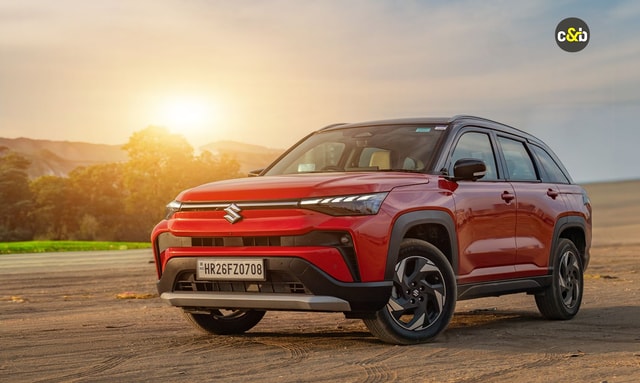Intel CEO Talks About Cars Becoming Computers And Support For Automakers

- Intel's CEO said cars are becoming computers with rubber on them
- He views the auto sector as a great new market for its foundries
- Intel's MobileEye autonomous driving unit has also been doing good
Pat Gelsinger, who become Intel's CEO only back in February, has set out to reinvent the company in which he became its first CTO and youngest VP. His new IDM 2.0 strategy promises a lot which includes better chips for its customers, more fabrication capacity in Europe and American continents and also the opening up of its fabs for the manufacturing of third party chips even if they are using technology based on Intel's competitor's ARM and RISC-V. This aspect of the strategy also opens up avenues for automakers who are struggling with a shortage of chipsets.
In his first earnings call as CEO, Gelsinger, in an interview with Yahoo Business, said, "We expect that the auto sector overall becomes a much bigger partnership and customer opportunity for Intel as it becomes more autonomous, more assisted, and more EV," said Gelsinger whose return to Intel has been taken very positively by the industry. "Cars are becoming computers with rubber on them. It is an exciting category for us," an excited Intel CEO proclaimed.
Gelsinger reiterated the fact that the global chip supply shortage would be in play for at least 2 years, he committed that his company was doing everything to help mitigate that.

The formation of Intel Foundry Services allows Intel to open up its foundries for the manufacturing of chipsets for cars
Intel's star has faded as it has lost its manufacturing ascendency to TSMC and Samsung in the last 5 years. Gelsinger believes that Intel is on a path to remedying those issues and will achieve parity with its competitors in the next couple of years. However, in the meanwhile, he also said that Intel was well-positioned to serving the auto sector by opening up its fabs as automobiles didn't need the most advanced manufacturing node.
"We're looking- can we bring designs? Can we help their suppliers by bringing some of that capacity online? Because we don't have to build a new fab. We're reallocating some of our existing fab capabilities in the foundry services. And then longer-term- hey, products and areas like our Mobileye division are just killing it in the market," explained Gelsinger.
"We've had reach-outs and we've reached out you know, let's help there as quickly as possible because it's such an important piece of our economy. And they're going through such a disruptive, innovative period with autonomy and EV," Gelsinger added.
Most automakers are leveraging ARM-based chipsets, including Tesla which has its FSD chipset platform. Even Nvidia's autonomous driving chipsets are based on the ARM architecture. In fact, Nvidia is acquiring ARM, but this acquisition is facing stiff resistance and perhaps the UK and Chinese regulators may block this acquisition.

Intel's MobileEye division has been making great strides
However, these chipsets aren't developed on the most advanced computing node which is 5nm reserved only for smartphone and notebook chipsets where performance per watt is very critical. Additionally, these chipsets are manufactured by contract manufacturers like TSMC and Samsung.
Tesla's FSD chipset is based on Samsung's 14nm process while Nvidia's latest Atlan chips for cars are going to be manufactured on an older 16nm process.
Potentially, with Intel's new direction, it can become a manufacturing partner for any chip design company with whom it traditionally just competed. This means if Nvidia or Tesla or any company for that matter can get a contract manufacturer like TSMC, Samsung, Global Foundries, to make its chips because of the capacity constraints, now there is a new option in Intel.
Intel also doesn't need to worry about the fact that it doesn't have the most advanced technology as the auto sector doesn't need it. Intel's older technology in this regard can come to serve the auto industry with its new IDM 2.0 strategy with the formation of Intel Foundry Services under the leadership of Dr Randhir Thakur.
As a part of this strategy, Gelsinger has committed $20 billion to build three new foundries in the next 2-3 years. These facilities will be in the US and Europe. Arizona has already been earmarked as one of the venues for this.
In addition to this, Intel's Mobile Eye autonomous driving technology unit is already making some great strides reporting $377 million in revenue with a 48 per cent year-on-year improvement. It has announced it will be launching a driverless delivery service in 2023.
Latest News
 Jaiveer Mehra | Feb 27, 2026New Tata Tiago EV Spied Testing On Indian Roads: Enhanced Range Incoming?Launched in India in 2022, the Tiago EV received a notable update last year, adding in newer features and some styling tweaks.3 mins read
Jaiveer Mehra | Feb 27, 2026New Tata Tiago EV Spied Testing On Indian Roads: Enhanced Range Incoming?Launched in India in 2022, the Tiago EV received a notable update last year, adding in newer features and some styling tweaks.3 mins read car&bike Team | Feb 27, 2026VLF Mobster 135 Price Hiked As Introductory Offer EndsThe Mobster 135 is now priced at Rs 1.37 lakh (ex-showroom), which marks an increase of Rs 7,000.2 mins read
car&bike Team | Feb 27, 2026VLF Mobster 135 Price Hiked As Introductory Offer EndsThe Mobster 135 is now priced at Rs 1.37 lakh (ex-showroom), which marks an increase of Rs 7,000.2 mins read car&bike Team | Feb 27, 2026New MG plug-in hybrid SUV Spied testing In India AgainMG’s next new launch in the Indian market could be the Wuling Starlight 560-based model that has been spied on test for the second time in India.2 mins read
car&bike Team | Feb 27, 2026New MG plug-in hybrid SUV Spied testing In India AgainMG’s next new launch in the Indian market could be the Wuling Starlight 560-based model that has been spied on test for the second time in India.2 mins read Jaiveer Mehra | Feb 27, 2026Mini Cooper S Victory Edition Bookings Open In IndiaSpecial edition of the Mini hatchback commemorates the brand’s 1965 Monte Carlo Rally victory.1 min read
Jaiveer Mehra | Feb 27, 2026Mini Cooper S Victory Edition Bookings Open In IndiaSpecial edition of the Mini hatchback commemorates the brand’s 1965 Monte Carlo Rally victory.1 min read Girish Karkera | Feb 27, 2026BMW Chairman Oliver Zipse Named 2026 World Car Person of the YearThe award makes him part of a select industry leaders to make the cut.1 min read
Girish Karkera | Feb 27, 2026BMW Chairman Oliver Zipse Named 2026 World Car Person of the YearThe award makes him part of a select industry leaders to make the cut.1 min read car&bike Team | Feb 26, 2026Triumph 350 cc Range India Launch By April 2026Bajaj had confirmed the development of the 350 cc Triumph models back in November, following the GST rate reforms.1 min read
car&bike Team | Feb 26, 2026Triumph 350 cc Range India Launch By April 2026Bajaj had confirmed the development of the 350 cc Triumph models back in November, following the GST rate reforms.1 min read
 Preetam Bora | Feb 24, 2026Hero Destini 110 Review: Simplicity, RefinedThe Hero Destini 110 is a no-nonsense commuter that is simple, comfortable and above all, fuel efficient. In 2026, when buyers are spoilt for choice, is it good enough to consider?1 min read
Preetam Bora | Feb 24, 2026Hero Destini 110 Review: Simplicity, RefinedThe Hero Destini 110 is a no-nonsense commuter that is simple, comfortable and above all, fuel efficient. In 2026, when buyers are spoilt for choice, is it good enough to consider?1 min read Preetam Bora | Feb 23, 2026TVS Apache RTX Road Test Review: Redefining the Entry-Level ADVAfter spending some time with the TVS Apache RTX in traffic, the daily commute, as well as on open highways, one thing becomes clear: the RTX is trying to redefine the entry-level ADV segment. But is it without fault?1 min read
Preetam Bora | Feb 23, 2026TVS Apache RTX Road Test Review: Redefining the Entry-Level ADVAfter spending some time with the TVS Apache RTX in traffic, the daily commute, as well as on open highways, one thing becomes clear: the RTX is trying to redefine the entry-level ADV segment. But is it without fault?1 min read Girish Karkera | Feb 20, 2026Road Test: 2025 VinFast VF7 AWD Sky InfinityFlagship all-electric SUV from the Vietnamese car maker gets most of the basics right.1 min read
Girish Karkera | Feb 20, 2026Road Test: 2025 VinFast VF7 AWD Sky InfinityFlagship all-electric SUV from the Vietnamese car maker gets most of the basics right.1 min read Jaiveer Mehra | Feb 18, 2026New BMW X3 30 Vs Mercedes-Benz GLC 300: Midsize Luxury SUV FaceoffWith the new X3 30, BMW has a direct competitor to the petrol GLC 300, but which is the luxury SUV for you?1 min read
Jaiveer Mehra | Feb 18, 2026New BMW X3 30 Vs Mercedes-Benz GLC 300: Midsize Luxury SUV FaceoffWith the new X3 30, BMW has a direct competitor to the petrol GLC 300, but which is the luxury SUV for you?1 min read Jafar Rizvi | Feb 15, 2026Maruti Suzuki Victoris: Long-Term Review - Report 1The Victoris is Maruti’s latest offering for the Indian market, and after spending some time with it, here are a few early impressions.1 min read
Jafar Rizvi | Feb 15, 2026Maruti Suzuki Victoris: Long-Term Review - Report 1The Victoris is Maruti’s latest offering for the Indian market, and after spending some time with it, here are a few early impressions.1 min read
























































































































